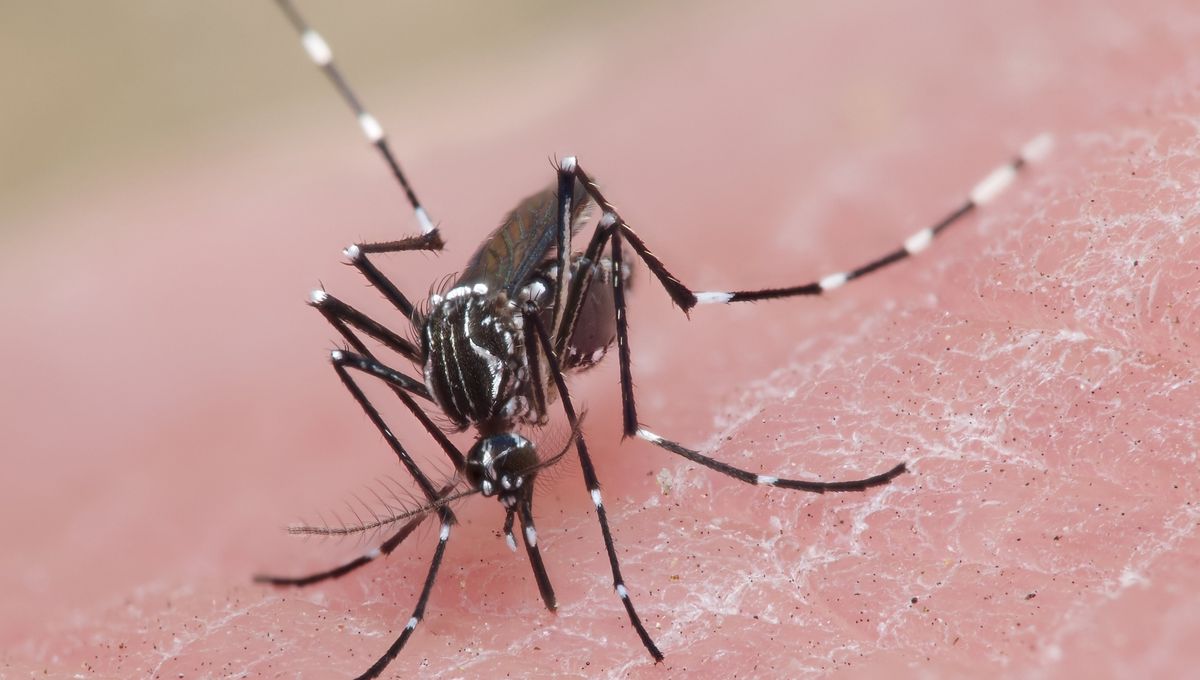
Deaf male mosquitos don’t mate – that’s the finding of new research that tinkered with the little flies’ genes to understand the importance of hearing in their sex lives.
The study focused on Aedes aegypti – these mosquitoes spread viruses infecting approximately 400 million people annually, including dengue, yellow fever, and Zika – and has identified a quirk of creepy crawly copulation that could be exploited to help beat mosquito-borne diseases.
For male mozzies, being able to hear their mate is fundamental during sexy times. The insects mate in mid-air, and the sound of a female’s wingbeats is a crucial part of the seduction process. Females flap their wings at around 500 hertz to entice males, which, upon hearing this, take off in pursuit, buzzing at about 800 hertz themselves.
This has long been established, but, until now, we had no idea whether loss of hearing in male mosquitoes would just disrupt mating or eradicate it entirely. To find out, the team behind the research created deaf mosquitoes by eliminating a protein called trpVa that appears to be essential for hearing. To do so they used the CRISPR-Cas9 system to knock out the gene responsible.
Taking a closer look at the mutant mosquitoes’ brains revealed that neurons that normally detect sounds were not responsive to female wingbeats. And sure enough, the hard-of-hearing bugs made no attempts to mate with females – even after days in the same cage.
“If they can’t hear the female wingbeat, they’re not interested,” study author Professor Craig Montell said in a statement.
In comparison, when the researchers didn’t meddle with their hearing, A. aegypti were much more promiscuous, getting it on multiple times in just a few minutes.
“I think the reason why our major finding is so shocking is because, in most organisms, mating behavior is dependent on a combination of several sensory cues,” said co-lead author Emma Duge, one of Montell’s doctoral students. “The fact that taking away a single sense can completely abolish mating is fascinating.”
It was a different story for female mosquitoes, however. Deaf individuals were still up for it, the team found. “The impact on the female is minimal, but the impact on the male is absolute,” according to Montell.
The team believe these findings will be applicable to other species of mosquito too – knowledge that we could harness to aid the prevention of multiple mosquito-borne diseases.
Female mozzies are the ones that spread disease, but “without the ability of males to hear – and acoustically chase – female mosquitoes might become extinct,” Dr Joerg Albert, from the University of Oldenburg in Germany and an expert on mosquito mating, told the BBC.
Therefore, targeting trpVa could complement existing attempts to control populations of the planet’s deadliest animal, such as releasing sterile males.
The study is published in the journal PNAS.
Source Link: Deaf Mosquitoes Don’t Get It On – And We Could Harness That To Fight Disease